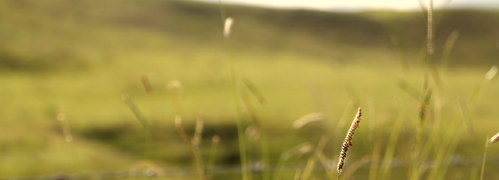
From Desiring God
In the beginning, God created rhythms. He spoke on day four,
Let there be lights in the expanse of the heavens to separate the day from the night. And let them be for signs and for seasons, and for days and years. (Genesis 1:14)
When Adam entered Eden two days later, he stepped into a dance of day and night, month and year, winter and spring and summer and fall. And then, between the rhythms of the day and the month, God added one more, a pattern taught not by the heavens but by his own example: the seven-day rhythm of the week (Genesis 2:1–3).
God could have made a rhythm-less world if he wanted — a world without days and weeks and months and years. But in his wisdom, days four and seven of creation serve day six; rhythms make the world a good habitation for finite humans, in need of rest and refreshment. As creatures of dust, we are creatures of rhythm.
“Which is why it’s so concerning,” Kevin DeYoung writes, “that our lives are getting more and more rhythm-less.” He represents many when he says,
We don’t have healthy routines. We can’t keep our feasting and fasting apart. Evening and morning have lost their feel. Sunday has lost its significance. Everything is blurred together. The faucet is a constant drip. (Crazy Busy, 94)
In other words, life today looks less like Eden, and more like Egypt.
Let there be lights in the expanse of the heavens to separate the day from the night. And let them be for signs and for seasons, and for days and years. (Genesis 1:14)
When Adam entered Eden two days later, he stepped into a dance of day and night, month and year, winter and spring and summer and fall. And then, between the rhythms of the day and the month, God added one more, a pattern taught not by the heavens but by his own example: the seven-day rhythm of the week (Genesis 2:1–3).
God could have made a rhythm-less world if he wanted — a world without days and weeks and months and years. But in his wisdom, days four and seven of creation serve day six; rhythms make the world a good habitation for finite humans, in need of rest and refreshment. As creatures of dust, we are creatures of rhythm.
“Which is why it’s so concerning,” Kevin DeYoung writes, “that our lives are getting more and more rhythm-less.” He represents many when he says,
We don’t have healthy routines. We can’t keep our feasting and fasting apart. Evening and morning have lost their feel. Sunday has lost its significance. Everything is blurred together. The faucet is a constant drip. (Crazy Busy, 94)
In other words, life today looks less like Eden, and more like Egypt.
